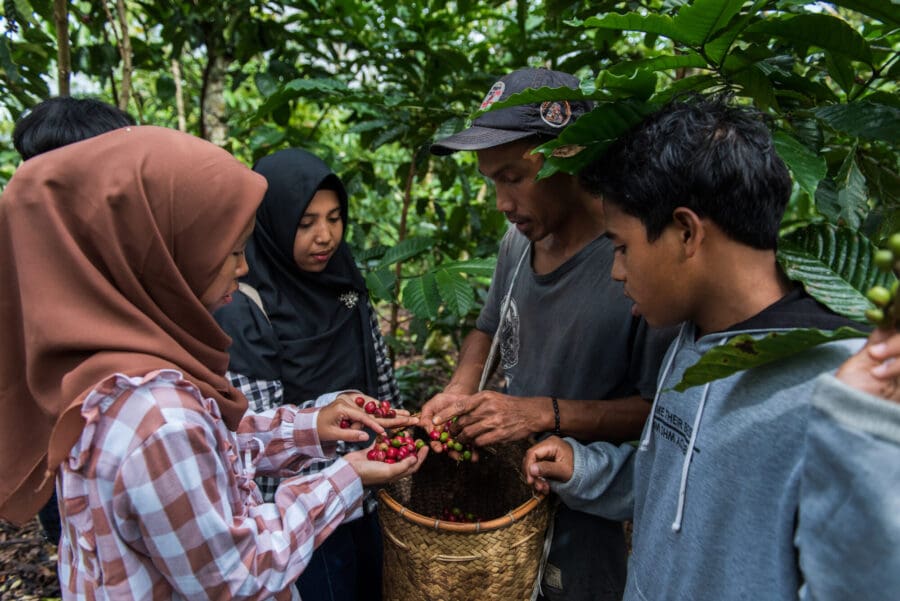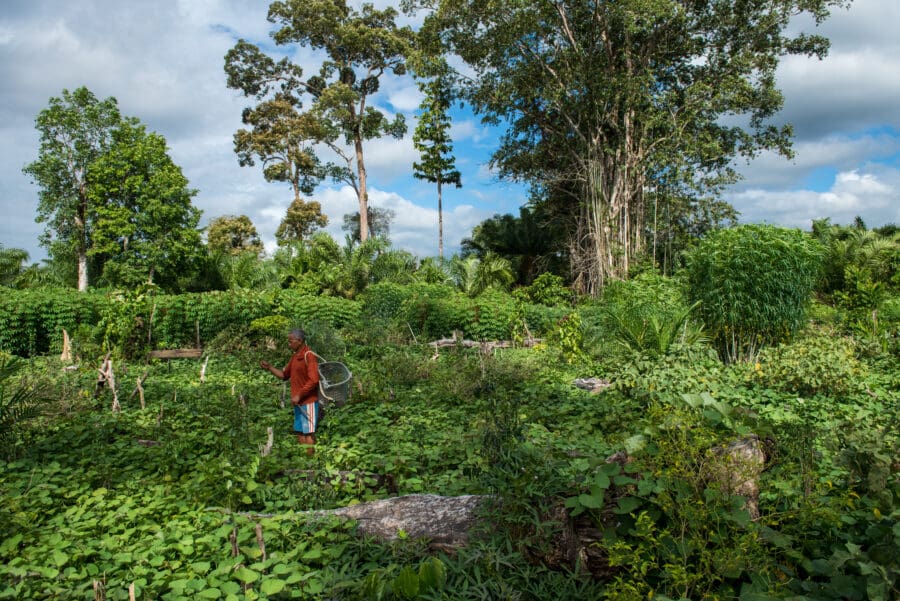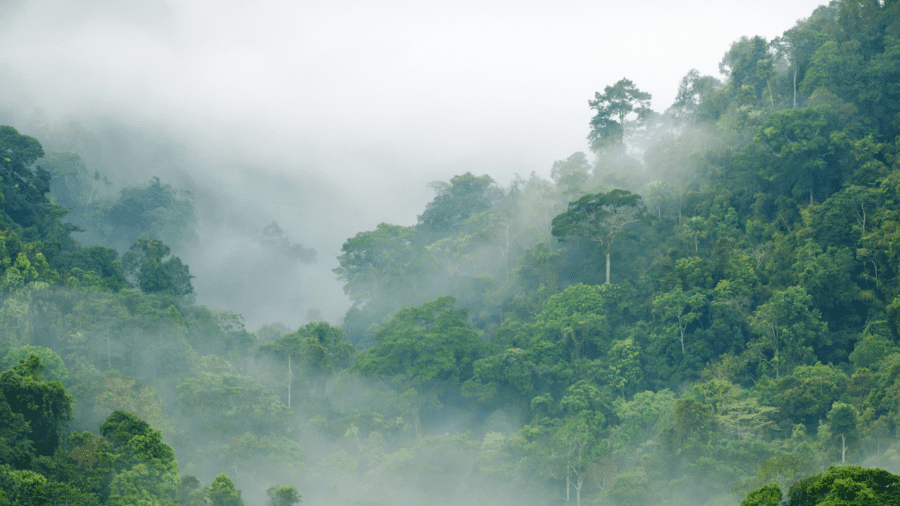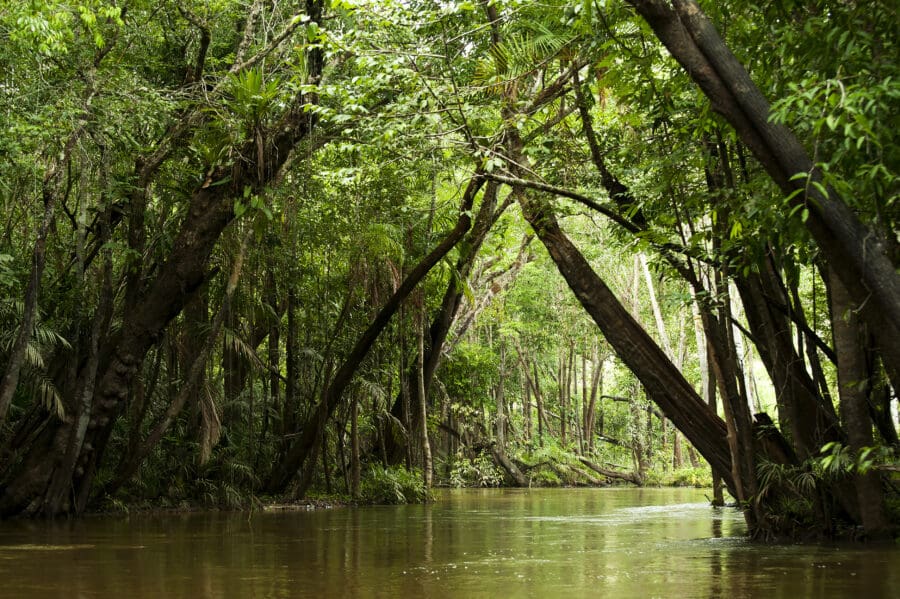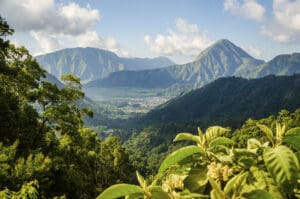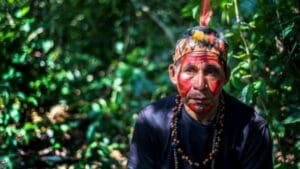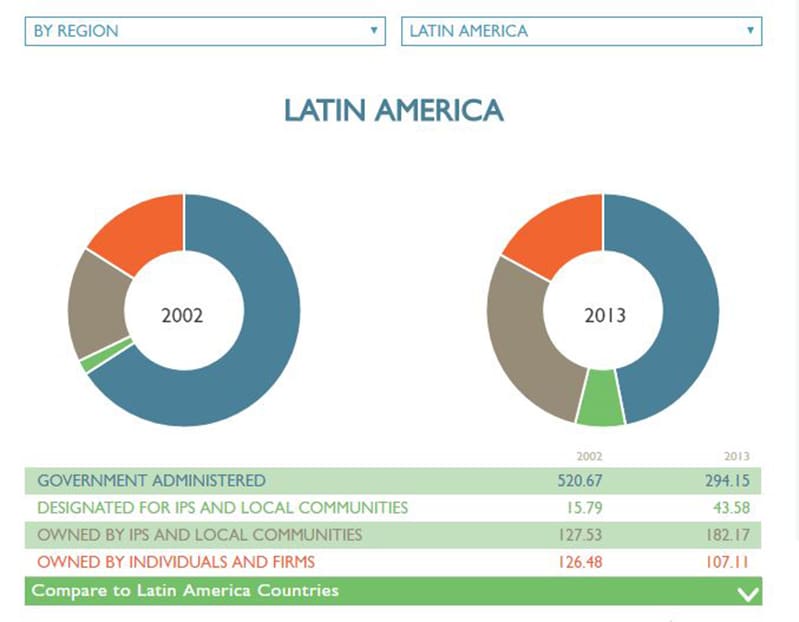Novo relatório mostra progresso inconsistente em nível nacional em relação aos direitos de posse de terras para Povos Indígenas, Povos Afrodescendentes e comunidades locais
New report shows inconsistent domestic progress on tenure rights for Indigenous Peoples, Afro-descendant Peoples, and local communities
The recent release of the Second Edition of Who Owns the World’s Land? offers an important moment to take stock of the global state of Indigenous, Afro-descendant, and local community land rights recognition. The data in the report covers 73 countries, which cumulatively comprise 85% of the world's land area, and gives a comprehensive snapshot of the global landscape for community land rights at a critical moment for people and the planet. Here are five of the biggest takeaways from the report.
For more than 10 years, the LandWise Law Library has grown into an essential resource on family, land, and natural resource rights under the care of Landesa and Resource Equity. As Resource Equity closes its doors, RRI is thrilled to announce that it will carry the LandWise Law Library on through its next chapter.
This October, the Democratic Republic of the Congo (DRC)’s National Assembly passed the country’s first-ever legislation on land-use planning. The historic bill’s passage is a result of years-long advocacy by civil society organizations led by RRI collaborator Centre for Innovative Technologies and Sustainable Development.
Rights and Resources Group has acquired the LandWise Law Library, a crucial digital compilation of articles, and research on women’s land rights and tenure.
According to a new report by RRI, existing national laws have the potential to recognize Indigenous Peoples’, Afro-descendant Peoples’, and local communities’ rights to own or control more than 260 million hectares (Mha) of land across the world—an area twice the size of Peru.
RRI is excited to announce the launch of its new online Tenure Tool. This platform, hosted on RRI’s website, will give rightsholders, researchers, activists, policymakers, and the public free and easy access to qualitative and quantitative data on the forest tenure rights of Indigenous Peoples, Afro-descendant Peoples, local communities, and the women within those communities.
At UNFCCC COP 26, new research shows Indigenous Peoples and local communities hold at least 958 million hectares of land in countries spanning most of the world’s endangered tropical forests – yet have legal rights to less than half of their lands. Community-held lands sequester over 250 billion metric tonnes of carbon, and lack of secure rights threatens to release much of this carbon into the atmosphere through deforestation.
With surging international, national, and sub-national policy attention to land tenure security (LTS) in developing countries in recent years, it is timely to ask: What have been the effects of thousands of efforts to improve it in dozens of developing countries? To date, almost all efforts to answer this question have been relatively small-scale, discrete studies within the boundaries of a single country.
On paper, community-based forest management sounds like a good idea and it has garnered strong support internationally. But experts familiar with this conservation strategy have found that while CFM may be succeeding in meeting some of its goals, it fails to achieve others. By reviewing some of the scientific literature on CFM’s impacts, we have tried to tease apart its effectiveness.
For Amazonian and native communities, it is not a matter of ignoring or rejecting the land market, but rather finding the best way to relate to it while preserving their ancestral properties, rights, traditions, and knowledge (which are key for biodiversity and intellectual property).
Amid last year’s political shocks and challenges to the primacy of human rights, one consistent and inspiring global trend emerges: the growing recognition that the land rights of Indigenous Peoples and local communities are key to ensuring peace and prosperity.
New research released on Thursday by the Rights and Resources Institute shows that despite improvements in respect for communities’ rights by global companies, land rights remain largely ignored.
Forced evictions of local communities from their lands by foreign companies fuel around two-thirds of land ownership disputes across Africa.
Experts at Dakar event point to a significant cause of investment losses, work stoppages and violence across Africa: the failure of governments and companies to respect the land rights of indigenous and local communities
While land-related conflict in India has long posed a threat to communities’ security and investment in sustainable development alike, relatively little research has attempted to…
Days before the RSPO complaints panel was supposed to issue a final judgment on the complaint filed against them, Plantaciones de Pucallpa withdrew from the RSPO.
Data on customary lands of local communities is crucial to advocacy, securing legal recognition of land and resource rights, and measuring global progress.
Failure to recognize customary rights in tropical forests found to drive deforestation, climate change, and even armed conflict; new evidence released in London makes clear…
YARINACOCHA, Peru—On the 5th of December 2015 we, the Federación de Comunidades Nativas del Ucayali – FECONAU (Federation of Native Communities of Ucayali) representing 35…
Who has legal ownership over the world’s forests? And how has that ownership changed over time? RRI’s new interactive Forest Tenure Tool lets you compare…

